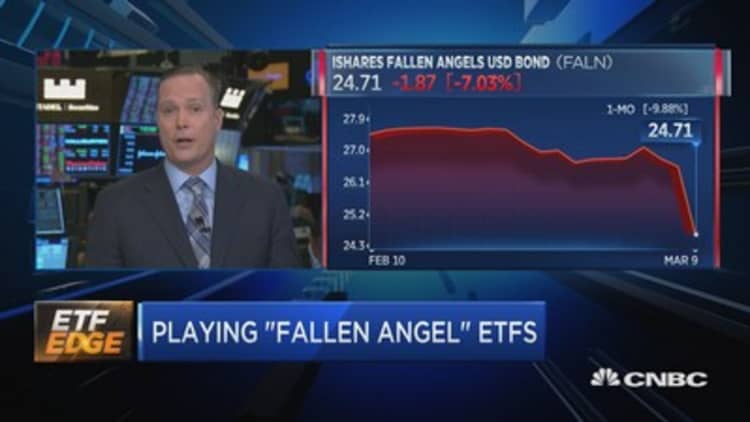
In a way, the stock market's outsized volatility has been a win for the exchange-traded fund industry.
That's at least according to the panel that joined CNBC's "ETF Edge" this week to discuss the historic swings, which pushed the Dow Jones Industrial Average and S&P 500 into a bear market and sent the Dow to its worst decline since 1987.
The way that ETFs have held up during these swings has been a testament to the industry's strength, Dave Nadig, chief investment officer and director of research at ETF Trends, said in the Monday interview.
"This has actually been a great victory for ETFs as a structure. Everybody's been concerned in the mainstream media that a big volatility spike like this would unravel some part of the market we didn't understand. In fact, the opposite has happened," he said. "ETFs have delivered like champs here. We've had no major breaks. Even with the circuit breaker hit [Monday], the reopen off that circuit breaker was, frankly, flawless."
The same can be said for iShares' suite of bond-based funds, said Samara Cohen, co-head of iShares Markets and Investments, in the same conversation.
"What we're seeing in this high-velocity market, as in past fixed income-stressed markets, the bond market is better with fixed income ETFs in it than it was without. Fixed income ETFs provide support to the bond market," she said. "It's a place for investors to exchange risk, and ... it was balanced trading."
ETFs also assist in price discovery, Nadig and Cohen said. Cohen said that her firm's Core S&P 500 ETF (IVV) even hinted at the market's circuit breaker trigger before the broader market opened Monday. Yet another circuit breaker was triggered Thursday as stocks continued their plunge.
On Monday, "we were able to see where S&P ETFs were trading," Cohen said. "We were also able to see where European-listed ETFs were trading that reference U.S. markets, and that gave us a pretty good indication going into the U.S. open that we were likely to see a marketwide circuit breaker."
Nadig added that when trading was temporarily halted in shares of oilfield service company Halliburton on Monday, "you could look at any of those ETFs that hold large Halliburton positions and you could get a proxy idea of where it was going to reopen."
"ETFs have become the dominant price discovery vehicle for illiquid securities," he said. "It's been spot on."





